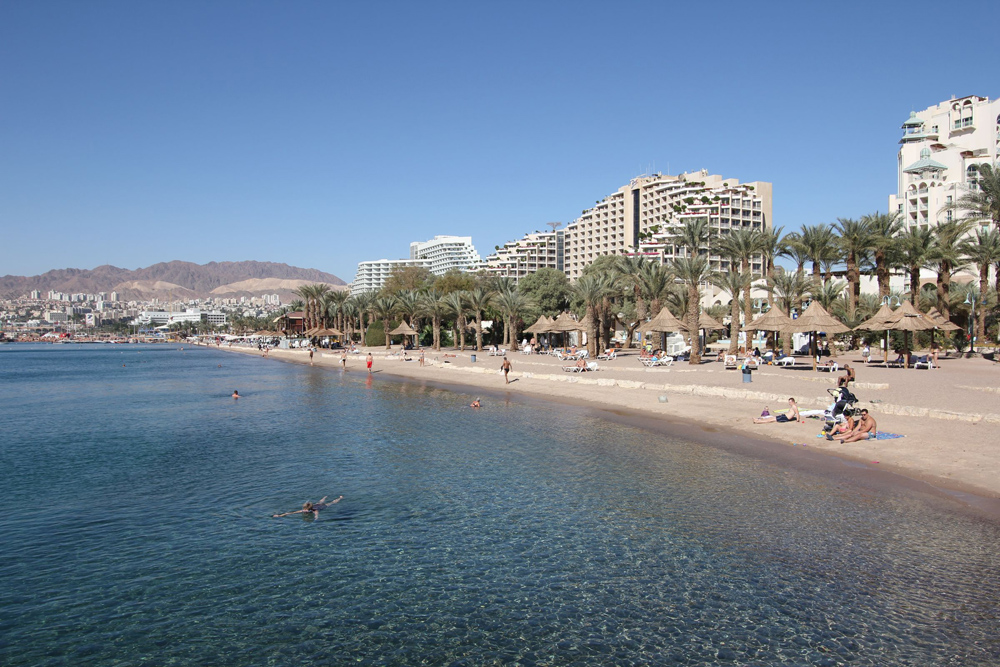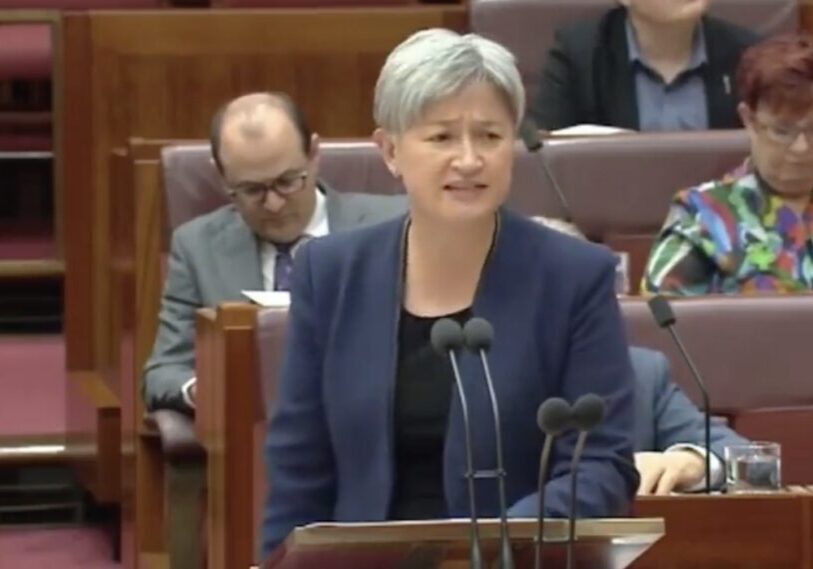Australia/Israel Review
Bibi takes a punt
Mar 9, 2016 | Amotz Asa-El

Amotz Asa-El
There is no gambling like politics, said Benjamin Disraeli, unaware that future generations would prove that there is also no politics like gambling.
Now, if it is up to Prime Minister Binyamin Netanyahu, the controversial casino industry famous for bringing prosperity to places like Las Vegas and Macau is to arrive in Israel, albeit in a limited and constricted way. Then again, his quest faces formidable political opposition which, together with the pro-gambling lobby he has chosen to back, encapsulate the conflicts that are part of Israeli culture, business, and society.
The lobby is led by the hoteliers of Eilat, the resort city at Israel’s southernmost tip, and by Tourism Minister Yariv Levin, a Netanyahu confidant.
Overlooking the Red Sea where it enjoins Egypt, Saudi Arabia and Jordan, this city of 48,000 inhabitants features 48 hotels that benefit from a unique combination of assets – a desert climate along a placid beach lapped by azure water, at the foot of violet-bronze mountains.
With its nearly rainless winters’ temperature averaging 23 degrees celsius, planeloads of German and Scandinavian sunbathers have been landing at Eilat’s airport in direct charter flights for decades. The summer, averaging 36 degrees, fills the hotels with Israelis. All of this has created enough traffic to justify the construction of a new, US$450 million airport, intended to become operational next year.
The city’s port, though Israel’s maritime commercial gateway to Asia, employs fewer than 400 people. The main employer in Eilat is tourism, where 80% of residents earn their living.
Today, however, tourism is hurting – due to economic conditions in Europe, competition from the nearby Jordanian town of Aqaba, and because of Egypt’s ongoing war with an Islamist insurgency in the nearby Sinai Peninsula.
Netanyahu and Levin, then, argue that exempting Eilat from Israel’s ban on gambling would boost its struggling economy, creating thousands of sorely needed new jobs in casinos and hotels. A feasibility study that the Tourism Ministry conducted recommended establishing a complex of up to four casinos in the old airport following its imminent replacement.
There is no argument about the likely economic benefits of casinos in Eilat.
Gambling has yet to become fully legitimate worldwide, but, in recent decades, the taboo surrounding gaming for money has largely collapsed. Las Vegas’ success made it sprout up elsewhere in America, while Communism’s collapse brought legal gambling to many parts of the former Eastern Bloc. The global gaming industry that entered this decade worth some US$117 billion is forecast to emerge from the decade worth more than double that amount.
Many gamblers are Israelis, thousands of whom fly on special gambling tours to destinations such as Romania, Bulgaria and Slovakia. In Israel itself, there are illicit casinos which sprout up and then vanish in industrial zones and private homes – all of which proves the obvious, that whether or not gambling is legalised, the demand is already there.
Another clear indication of the demand were the gambling boats that used to do brisk business while anchored in Eilat’s harbour, until a court ruled that this offshore activity was as illegal as it would be onshore.
There are two legal gambling institutions in Israel of a sort. Both are state owned, and thriving.
The lottery, or Mifal Hapayis, has been around since 1950 and justifies itself morally by using its revenues to build hospitals, infirmaries, schools, parks and theatres. Selling an assortment of numbered tickets, scratch cards, plastic cards, monthly subscription programs, and turns at electronic slot machines, its revenues in 2014 were NIS 6.2 billion (A$2.3 billion), twice what they were a decade earlier.
Meanwhile, the Sports Gambling Authority, known as Toto, through which thousands gamble every week on results in the local soccer, basketball and other sporting events, earned NIS 2.6 billion (A$950 million) in 2014.
The opponents of Netanyahu’s initiative lost no time making their feelings public, once it became known he had assigned officials to develop a plan for legalised gambling in Eilat.
These opponents came mostly from within Netanyahu’s conservative coalition, yet different factions offered very different arguments against it.
For the ultra-Orthodox United Torah Judaism, gambling is anathema due to the way it is seen by ancient Jewish law, which, as early as the second century CE, ruled that “he who plays with the dice” is disqualified from testifying in court.
Modern-Orthodox Education Minister Naphtali Bennet, whose Jewish Home party is courting a mixture of religious and secular voters, avoided the religious argument, but said instead that gambling is immoral since it deludes people into a belief that their livelihood can be earned through chance rather than effort.
And Interior Minister Arye Deri, who heads the Shas party representing a mainly working class electorate of Middle Eastern origins, said legalised gambling would hurt the poor. “It will destroy the weak and benefit several tycoons,” he said.
All three parties vowed to flatly oppose the passage of the bill that Netanyahu is reportedly preparing. So have some in the opposition. “Gambling brings crime and economically breaks up the gamblers and their families,” said Labor faction chair Merav Michaeli.
Arab lawmakers are also expected to oppose legalised gambling – some relying on the social arguments that their Jewish peers cited, and some also because it is reviled by Islamic religious sources.
Netanyahu and his Tourism Minister obviously understand that, when added up, all this opposition looks too strong for them to defeat. Their strategy, therefore, is to propose legislation that will seek to severely restrict any gambling – not only geographically, but also socially.
One proposal says that entry to casinos would be allowed only to those displaying a foreign passport. Other thoughts being canvassed include to impose a high minimum age of entry, to charge Israelis an entrance fee, and to ban the entry of welfare recipients.
Opponents say such ideas will be ineffective. Hundreds of thousands of Israelis own foreign passports, they argue, a minimum age will still expose millions to gambling’s temptations, as will an entrance fee, and keeping out welfare recipients, even if proven practical, would still address the social threat only at the margins.
Moreover, the one casino that emerged within Israeli-controlled territory in the past, in Jericho, is not recalled fondly. It arrived in the wake of the Oslo Accords and vanished with their collapse. Built by shady Austrian businessman Martin Schlaff as a joint venture with a company partly owned by Yasser Arafat, the vision behind it was that it would attract Israelis, and as such would be both an engine and symbol of peaceful coexistence.
Israeli gamblers indeed flocked to Jericho until the outbreak of the second Intifada in 2000, but today it is recalled as a symbol of corruption. Schlaff has been alleged to have collaborated since the 1980s with the East German secret police, and then to have bribed Israeli politicians.
Some opponents have suggested that Netanyahu’s motivation is related to his close relationship with American casino kingpin Sheldon Adelson, but Netanyahu’s aides flatly rejected this theory. They say that Adelson has no interest in investing in gambling in Israel. This explanation appears to have been accepted even by the Opposition, which is attacking Netanyahu’s initiative as immoral and socially destructive, but not as corruptly designed to serve his personal interests.
Netanyahu’s challenge, then, is to convince his plan’s opponents that the gambling he will introduce will involve foreigners only, and will not affect the Israeli public other than by creating jobs that Eilat clearly needs. Yet judging by the reaction of his coalition partners – not to mention the Opposition – to Netanyahu’s spin of this political wheel, the Israeli PM’s bet is now facing long odds at best.
This article is featured in this month’s Australia/Israel Review, which can be downloaded as a free App: see here for more details.
Tags: Israel






